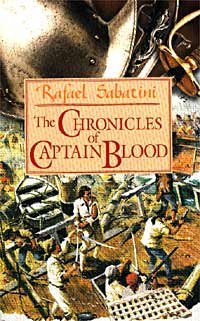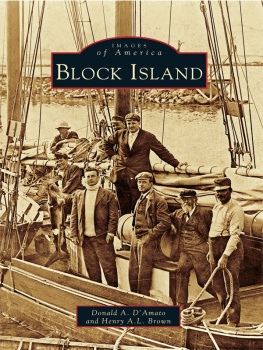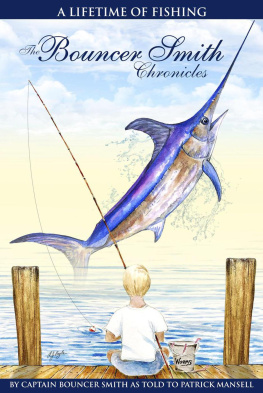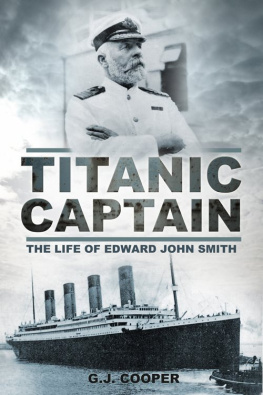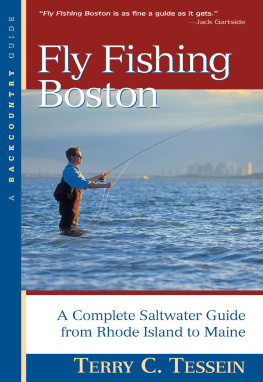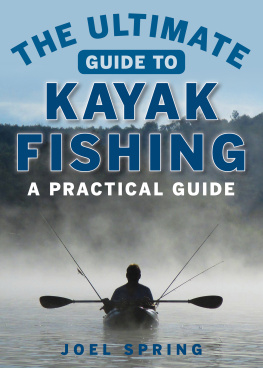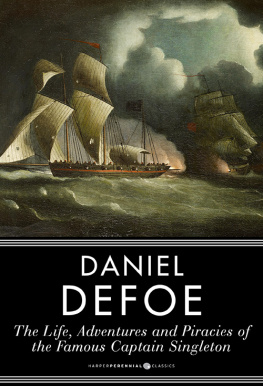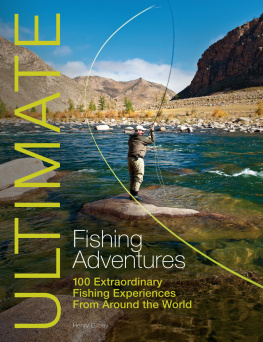ACKNOWLEDGMENTS
O nly an immodest person would believe that he or she has been able to attain any degree of success without the generosity and assistance of many along the way.
Dr. J. Stephen Anderson is one who extended his many-faceted acts of kindness. He has been of great encouragement to me during periods of near despair. He arranged for technical assistance, then worked with me week after week as the story developed. He read every segment of the manuscript and made me feel that I just might have a shot at getting it to completion. Thanks, Steve.
Daryl Anderson of the South County Museum in Narragansett, Rhode Island, opened to me a treasure trove of photographs of my grandfather and his crew of trap fishermen, along with some articles relating to local history and diagrams of trap nets drawn by Captain Peter Sprague. We wish Daryl every success as she and the maritime committee present to the public more than one hundred years of living history drawn from the records and recollections of our fishermen.
Jean Ann Pollard taught a creative-writing class that stimulated me to put down on paper the stories that were welling up within me. Thank you, Jean Ann.
Eric Erickson, a Maine artist of national renown, was kind enough to paint the portraits of my two draggers, the Roberta Dee and the Dorothy & Betty II. I am deeply grateful for his outstanding work.
Comfort and encouragement have been a daily blessing from the wife of my youthor, as I call her, my child bride. Her love, support, and wise counsel have kept me stable for fifty-six years, and it is my daily prayer that her gifts continue for another half-century. Thank you, Momma Bear.
Very important to me are those Maine-woods companions who were not only patient through the many hours of my sharing these tales as we sat around the campfire, but even asked for the telling and encouraged my writing them down.
None of these stories could even have begun were it not for the crew of the Roberta Dee and the Dorothy & Betty II. Of the full complement of men working with me over the years, outstanding in their loyalty were Norman Gilbert, Paul Champlin, Don Morse, and Maurice Moe Morse. They started off with me on my own fishing vessels from day one and stayed with me most of the time that I fished for a living. All but Norm Gilbert have crossed over the bar, but every one will be in my memory until I, too, sail into the sunset. Thank you all.
MAYDAY! MAYDAY!
In years past, commercial-fishing vessels were registered with the United States government. Once this happened, usually at a U.S. Customs House, they technically became the property of the government. In the event of a marine casualty (i.e., the sinking of a vessel), the captain/owner was responsible to report in detail how the loss occurred and, in particular, to provide information as to the welfare of the crew. On October 3, 1956, I was obligated to submit the following:
To: Lester W. Raynes
Commander, USCG
Senior Investigating Officer, Marine Inspection
409 Federal Building
Providence, Rhode Island
Re:Oil Screw Roberta Dee
Official Number: 250197
Marine Casualty: 09/26/56, 12:54 A.M.
Exact Locality: Loran Bearings IH0 1805; IH4 5900; IH6 1118
Dear Commander Raynes,
In compliance with Coast Guard regulations in reporting a marine casualty, I submit the following report on the loss of the Fishing Vessel Roberta Dee.
We had finished our last tow south of Marthas Vineyard, in thirty fathoms of water, and had just hauled in the trawl doors and secured the net and other gear. Then the crew began to put the fish below into the fish hold. I set a course for Point Judith, put the boat on automatic pilot, and went out to help the crew clean up the deck from the last tows catch.
The wind was beginning to freshen out of the northeast, and visibility at that time was about fifteen to twenty miles. We were full to the hatches, and they were secured for foul weather.
I set a two-hour watch for each of the crewNorm Gilbert, Maurice Morse, and his brother, Don Morse. Don was to be the last man on watch, and he was to call me when we got to Whistle Buoy R2, just south of Point Judith. I then turned in.
Maurice Moe Morse was near the end of his watch, and his brother, Don, was in the wheelhouse with him, finishing up a cup of coffee. As required, Moe was to check everything on deck as well as in the engine room before turning the watch over to the next man. On the Roberta Dee, the engine-room companionway was about ten feet aft of the wheelhouse. As Moe went belowdecks, he discovered seawater nearly up to the engine-room floor. The wind was now blowing at about twenty knots out of the northeast, and visibility was down to eight or ten miles.
Don came down to my stateroom and woke me, saying that we were making water real bad. I immediately went on deck and down to the engine room. Water was now over the floor. We had two 2-inch pumps on each engine, and those gave us the capacity of pumping ten inches of water in a continuous stream. I had Don check the hose outlets to see if both pumps were working. They were. I then asked Moe to wake Norm, who was sleeping in the focsle.
While he was doing that, I called the Coast Guard on channel 2182 to advise them of our situation. I provided cross bearings from our loran and told them that I was changing course from our original destination of Point Judith to Block Island, as it was about fifteen miles closer. I was hoping to make Old Harbor on the east side of the island. At that moment I did not think we were sinking, but I was not going to take any chances.
I couldnt believe that a ten-inch stream of water would not keep up with the problem, so I sent Moe and Don into the engine room to check the belts on the pumps, and I also asked them to try to find out where the water was coming from.
All pipes running from the engines cooling system to the outside hull seacocks were intact. There was no obvious explosion of seawater from under or around the engines, as it would be if the breach in the hull were in the engine room. Moe and Don came back with the report that the great flood of water was coming from the fuel-tank compartment.
The Roberta Dee was a converted subchaser built in 1941, at the outbreak of World War II. She had a separate fuel compartment, with a bulkhead aft of the crews quarters and officers staterooms, and it contained bronze fuel tanks about ten feet long. These ran from the keel to the deck above and from side to side inside the hull. The bulkhead forward was watertight, as it had remained intact since the time of the vessels construction. The after bulkhead, though, had been compromised. A section had been removed when the original engines that the navy had installed were taken out. New GM engines were put in their place when the vessel was converted for fishing. A section of the bulkhead had been left out to allow access to the fuel tanks for the new engines. It was from there that the cold Atlantic was pouring into the engine room.
As we steamed toward home that night, we must have struck a submerged objecta log or a tree stumpsomething big enough to punch a hole in the hull under the tank compartment. With a hold full of fish, and with the sea conditions as they were, we could strike such an object and not feel the impact.
In the meantime, Norman was clearing the dory of stowed gear and nets, releasing the tie-downs and checking to see that the plug was well seated in the bunghole in the after end of the dorys bottom. He brought out life jackets for all of us and dug out some emergency flares from a locker in the wheelhouse. I told the men to put on the life jackets while we had the opportunity.
I put out a mayday call on the emergency channel, as well as the channel used by fishermen. The fishing boat


